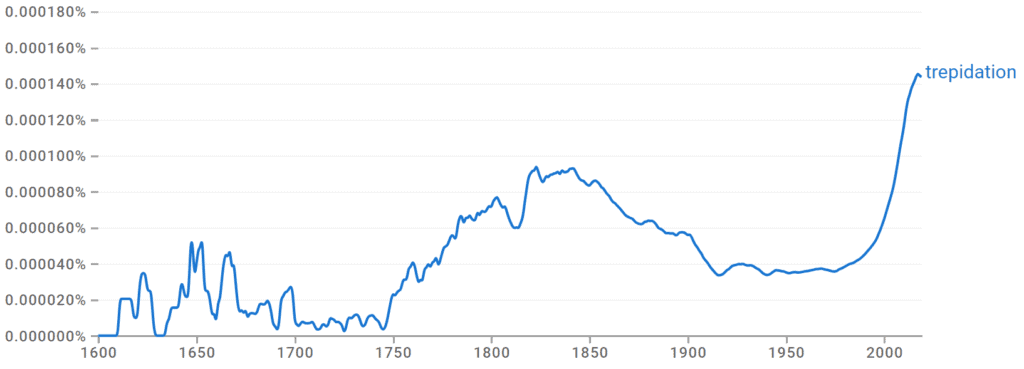Have you ever felt a feeling of fear related to something that is about to happen but have struggled to put a word to these feelings? If you have been searching for a way to describe these unexplainable yet valid emotions, trepidation is the word you are looking for.
The word trepidation has been around for the better part of a half-century and is derived from root words that indicate a sense of agitation or alarm. It is a descriptive noun that helps define those hard-to-place emotions you might feel and have difficulty explaining.
Let’s learn about what trepidation means and how to use it in a sentence in this article.
What Is the Meaning of Trepidation?

The definition of trepidation is explained as a feeling of fear, anxiety or apprehension about something one is about to take part in or something about to happen.
Trepidation is a mass noun, so it has no plural form. However, it does have an adjective form, trepidatious, and an adverbial form, trepidatiously.
For example:
- Despite the excitement of being a first-pick draft, he expressed his trepidation with the responsibilities of living up to the expectations everyone now had of him.
- Her trepidatious behaviors were understandable; after all, she had survived some pretty traumatic past experiences.
- We watched the children walk trepidatiously through the graveyard, likely because we had told them earlier it was haunted.
- The company’s trepidation was almost solely due to the poor economy and its effects on the local sales projections.
- Filled with excitement and trepidation, Johny and Stella stepped onto the stage, ready to deliver their first performance to a mammoth crowd.
- As Dina approached the haunted house, her heart raced, and a sense of trepidation filled her, unsure of what awaited her within those dark, eerie walls.
Trepidation Origins

Trepidation is a 17th-century word derived from the 11th-century Old French word trembler, meaning to shake from fear or cold. They originate from the Latin word trepidationem, which means trembling with agitation or alarm. The idea is of someone who is trembling with fright.
Let’s Review
The word trepidation is a mass noun, meaning it does not have a plural form, although it does have adjective and adverb forms. It explains the feeling or anxiety one might feel concerning something that will happen.
The word is used to imply a premonition of sorts or to help explain strong emotions of worry or fear towards an event that has yet to occur.
